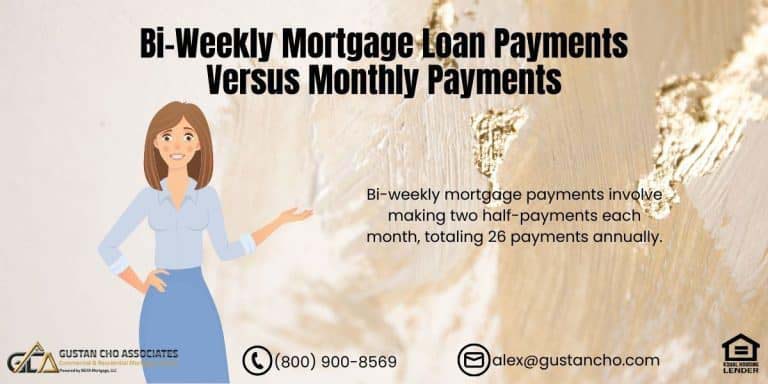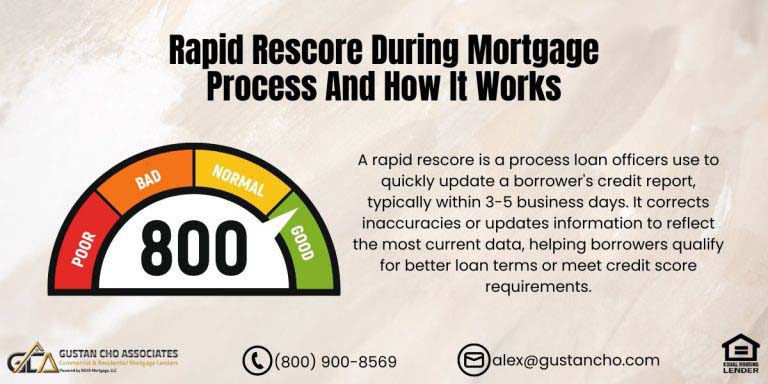This blog is about understanding mortgage application process to avoid delays. Despite the countless mortgage lending guidelines, applying for a mortgage application has become much easier than a few years ago. Homebuyers with prior bad credit, prior bankruptcy, foreclosure, deed-in-lieu of foreclosure, and a short sale can now qualify for home loans. Many home buyers do not realize they can qualify for an FHA loan with only a 3.5% down payment requirement and 580 credit score. Mortgage lenders do require income and want to see borrowers have the ability to repay (QM) their mortgage. They like to see job stability and the likelihood that their employment will continue for the next three years.
Understanding Mortgage Application Process From Application To Closing
For first-time home buyers, applying for a mortgage may seem like an endless task, with the mortgage lender asking them dozens of questions and documentation. Borrowers should take time to understanding mortgage application process. Be prepared to be asked many questions, and provide documents and letters of explanation before and during the mortgage application process. Understanding Mortgage Application Process is crucial for borrowers to avoid stress during the mortgage process. Understanding mortgage application process makes borrowers understand why mortgage processors and underwriters ask for certain conditions.
Every Lender Has a Different Mortgage Application Process
Whether dealing with a local bank, credit union, mortgage banker, or mortgage broker, they will ask borrowers the same questions. Their main objective is determining whether borrowers can repay the mortgage loan and afford the mortgage payments and other monthly expenses. Not all lenders have the same mortgage process. Some lenders may have loan officers issue pre-approval letters in a few hours. Other lenders will take a week for a pre-approval letter because all their pre-approvals are TBD Property Underwriting Approvals.
The Importance of Complete Legible Documents
All lenders will need to see documented income, liabilities, and assets. Two years of tax returns, two years of W-2s, and 60 days of bank statements are mandatory. Any irregular deposits need to be sourced. For borrowers with prior bankruptcy, foreclosure, deed-in-lieu of foreclosure, or short sale, all documentation about these needs to be provided. Divorce decrees, child support payments, and alimony payments all need to be provided as all pages of the payment agreements. Rental verification may be required.
Providing Documents Immediately After Conditional Loan Approval
If a lender requests rental verification, the only way it can be proven is by providing 12 months of canceled checks that have been paid to the landlord. If the mortgage loan applicant has been paying his or her landlord cash, rental verification cannot be used. Renters leasing their home from a registered property management company can have the property manager complete and sign a VOR Form instead of providing the lender with 12 months of canceled checks or bank statements.
Understanding Mortgage Application Process: Questions Lenders Often Ask
Mortgage lenders ask borrowers for two years of employment and residential history, among other personal or financial information. Lenders want to know whether borrowers are either renting or living with family. Rental verification is a huge compensating factor due to payment shock.
What Is Payment Shock?
Here is a case scenario on payment shock: If the renter can provide rental verification that they are currently paying $1,000 per month, the new proposed housing payment on a new home will be $1,100. The home buyer will have a very small payment shock because the new proposed mortgage payment is only 10% higher than the current rent payment.
If living rent-free with a family member and the new proposed housing payment is $1,100, the home buyer will have a significant payment shock because they go from zero to $1,100 monthly.
Borrowers do not have to have been employed for two years straight. Borrowers can have gaps in employment. Lenders require borrowers to provide a two-year employment history and overall employment history. College and trade schools can count toward work history as long as transcripts can be provided.
How Do Underwriters Look at Credit and Credit Payment History
Borrowers’ overall credit history will be reviewed, and each derogatory account will be reviewed. Having prior bad credit and getting a mortgage loan approval is alright. Everyone has had a period of bad credit throughout their lives due to unemployment, business loss, divorce, or other extenuating circumstances. Isolated incidents of periods of bad credit are understandable, as are bankruptcy, foreclosure, deed in lieu of foreclosure, and short sale. However, mortgage lenders like to see borrowers have re-established credit after a period of bad credit.
The Importance of Timely Payments in the Past 12 Months
Almost all mortgage lenders like to see borrower paying their bills timely for the past 12 months. Recent multiple late payments can be a problem. One or two late payments in the past 12 months are not necessarily deal killers. Borrowers with a long history of bad credit and late payments will have issues. Derogatory credit over an extended period without extenuating circumstances shows disregard for credit. Credit scores are extremely important because it dictates whether borrowers qualify for a particular mortgage program. Credit scores always dictate mortgage rates.
Debt-To-Income Ratio

Assets And Reserves
Mortgage lenders will require 60 days of bank statements. Any irregular deposits need to be sourced. Mortgage underwriters will want enough funds for the down payment and closing costs. If there are not enough funds for closing, then gift funds may be accepted from a family member. Mortgage lenders do not like to see any bank overdrafts in the past 12 months. Bank overdrafts are one of the most negative things for borrowers. Some lenders will deny a mortgage loan application even with one bank overdraft in the past 12 months. One or two overdrafts are not a deal killer, with some lenders with a good letter of explanation. There should be no reason for delays or stress during the mortgage process. Remember the days the mortgage closing can get delayed due to lenders closing on federal holidays.









